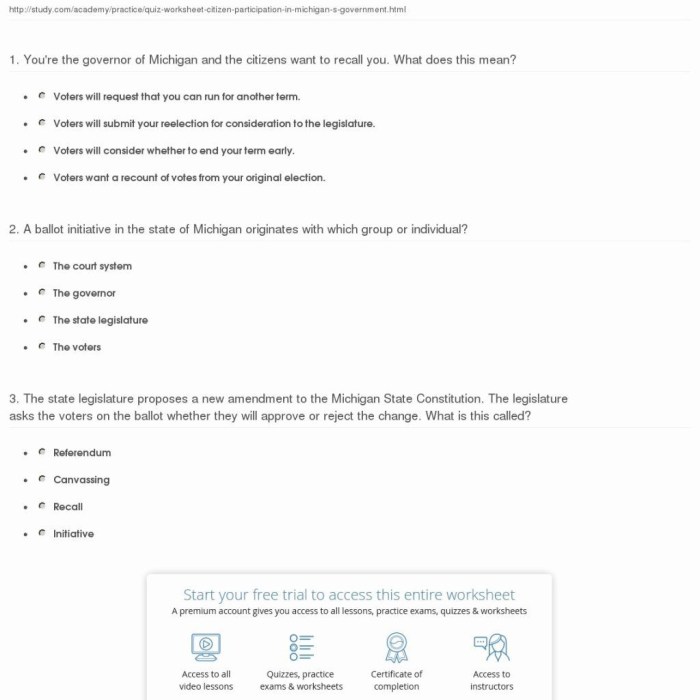Constitutional principles icivics answer key: Delve into the foundational concepts of constitutional principles, their significance in democratic societies, and the valuable insights provided by ICIvics. This comprehensive guide unravels the complexities of constitutional principles, offering a thorough analysis of the ICIvics answer key and empowering you with the knowledge to navigate real-world applications.
Constitutional Principles Defined

Constitutional principles are the fundamental values and beliefs that underpin a democratic society. They provide the framework for how power is distributed and exercised, and how the rights of citizens are protected. Key constitutional principles include:*
-*Popular sovereignty
The government derives its authority from the consent of the governed.
-
-*Limited government
The government’s powers are limited by the constitution and the rule of law.
-*Separation of powers
Power is divided among different branches of government to prevent any one branch from becoming too powerful.
-*Checks and balances
Each branch of government has the ability to check the power of the other branches.
-*Due process of law
Individuals are entitled to fair and impartial legal proceedings before being deprived of life, liberty, or property.
ICIvics Answer Key
ICIvics is a non-profit organization that provides free online resources for civics education. The ICIvics platform offers interactive games, simulations, and lesson plans that help students learn about the U.S. Constitution and government.The ICIvics answer key provides clear and accurate explanations for questions related to constitutional principles.
The answer key is well-organized and easy to use, making it a valuable resource for students and teachers alike.
Analyzing Constitutional Principles, Constitutional principles icivics answer key
Analyzing constitutional principles is essential for understanding how the government operates and how our rights are protected. The following steps can be used to analyze constitutional principles:
- 1.
- *Identify the relevant constitutional principle.
- 2.
- *Examine the text of the constitution.
- 3.
- *Consider the historical context in which the principle was adopted.
- 4.
- *Analyze how the principle has been interpreted by the courts.
- 5.
- *Apply the principle to real-world situations.
| Step | Description |
|---|---|
| 1 | Identify the relevant constitutional principle. |
| 2 | Examine the text of the constitution. |
| 3 | Consider the historical context in which the principle was adopted. |
| 4 | Analyze how the principle has been interpreted by the courts. |
| 5 | Apply the principle to real-world situations. |
Examples of Constitutional Principles
Constitutional principles are applied in a variety of real-world situations. Some examples include:*
- *The Supreme Court’s decision in Marbury v. Madison (1803) established the principle of judicial review.
- *The Civil Rights Act of 1964 was passed to enforce the constitutional principle of equal protection under the law.
- *The Voting Rights Act of 1965 was passed to enforce the constitutional principle of one person, one vote.
Methods for Applying Constitutional Principles
There are a variety of methods for applying constitutional principles to real-world situations. One common method is the balancing test. The balancing test weighs the interests of the government against the rights of individuals. Another common method is the strict scrutiny test.
The strict scrutiny test is used to review laws that discriminate against a suspect class or that infringe on a fundamental right.The following flowchart illustrates the decision-making process involved in applying constitutional principles:[Flowchart: Decision-Making Process for Applying Constitutional Principles]Factors to consider when applying constitutional principles include:* The text of the constitution
- The historical context in which the principle was adopted
- The interpretation of the principle by the courts
- The facts of the case
- The interests of the government
- The rights of individuals
Clarifying Questions: Constitutional Principles Icivics Answer Key
What is the significance of constitutional principles?
Constitutional principles establish the fundamental framework for a democratic society, safeguarding individual rights, limiting government power, and ensuring fair and just governance.
How does the ICIvics answer key contribute to understanding constitutional principles?
The ICIvics answer key provides clear and accurate explanations of constitutional principles, offering valuable insights and reinforcing their practical applications.
What is the process for analyzing constitutional principles?
Analyzing constitutional principles involves identifying their core elements, examining their historical context, and evaluating their impact on legal and political decision-making.